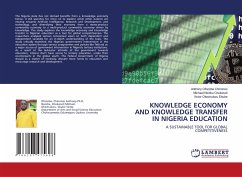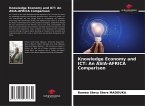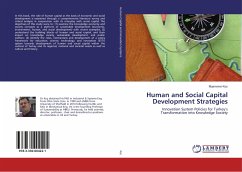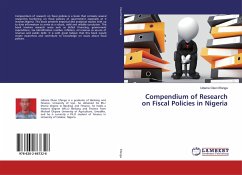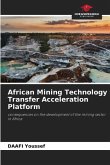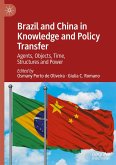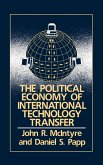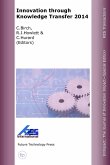The Nigeria state has not derived benefits from a knowledge economy hence, it still searches for more oil to explore while other nations are moving towards Artificial Intelligence, Research and Development, and technology, and diversifying their economy from a mono-product commodity economy to a multi-product commodity economy driven by knowledge. The study explores the knowledge economy and knowledge transfer in Nigerian education as a tool for global competitiveness. The researchers analyzed various conceptual views on both dependent and independent variables for an in-depth understanding of the topic. The study critically examined the Nigerian government's intervention in the education system through various programmes and policies like Tetfund as a major source of government intervention in Nigeria's tertiary institutions. As a result of the lackluster attitude of the government towards education, citizens don't have access to tertiary education, unlike their counterparts in the global south. The Federal Government of Nigeria should as a matter of necessity, allocate more funds to education and encourage research and development.
Bitte wählen Sie Ihr Anliegen aus.
Rechnungen
Retourenschein anfordern
Bestellstatus
Storno

